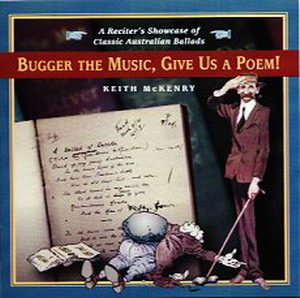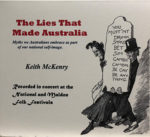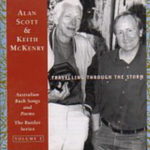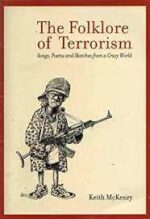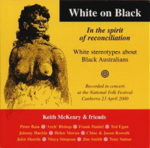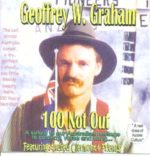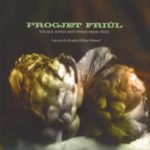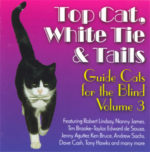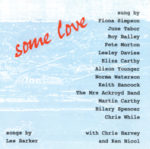Description
About the artist: A slightly crazy performance poet, Keith has been delighting festival audiences for over 25 years. In concert, he interweaves original verse with bush poetry, presenting an amalgam of history, humour, and social comment that defies stereotype. This year Keith is launching his new book ‘Australia’s Lost Folk Songs’, and giving a theme presentation on The Folklore of Prejudice. He is also providing both beginner and advanced workshops on performance poetry and recitation.
CD Review by Tony Smith
Many of the items which conservative politicians would list under the heading ‘Australian values’ are quite simply lies.
Keith McKenry, author, poet, raconteur and former bureaucrat, has exposed many of these lies in a CD of over two dozen mainly satirical poems.
Many of these he wrote himself, while there is also representation from the likes of CJ Dennis, John O’Brien, Henry Lawson and Duke Tritton.
Among McKenry’s own verse, some are superior.
His rewriting of the national anthem following the Tampa incident might be considered by some as unpatriotic, but when government actions contradict the ideals expressed in the national song, it seems highly appropriate to remind the world of our shortcomings in this way.
‘Australians all let us rejoice/ For we’re not refugees/ With golden soil let us recoil/ From those damned Afghanis’.
The government lies about the event went unpunished.
McKenry’s plaint about the asbestos in houses around Canberra, ‘The House in Julie’s Street’ is truly poignant, echoing something of the loneliness and desolation expressed by Lawson’s sadder offerings.
McKenry hoped that he could make a difference to this issue and that the pen would prove mightier than the sword, but he was frustrated.
McKenry also addresses ‘Terra Nullius’ and ‘Lex Talionis’, and uses time away from Australia to reflect on the 26th January.
These are all worthwhile topics which dwarf the trivial lyrics of popular songs.
In this age, when it seems to be an expectation that words and music will be embellished with video clips, a live audio recording is a risk.
The danger is multiplied when the recording is of one person reciting verse.
Keith McKenry’s ‘Lies’ were recorded at performances at the National Folk Festival and the Maldon Folk Festival.
Even more adventurous is the approach McKenry took to the poems, by inviting audience members to suggest national myths at random.
While it is always possible that McKenry expected some friendly suggestions for which he was prepared, there is always the possibility that some requests could be hostile.
McKenry deserves full marks for this courageous approach.
On the other hand, by not having a set list for his performance, McKenry sometimes found himself making some fairly tenuous links to his poems and this can be distracting.
Also, seventy six minutes is a good time for one person to be reciting.
Perhaps he might have sacrificed a few of his twenty seven tracks in favour of some musical interludes.
The CD would be enhanced by the addition of some songs or even some instrumentals suggestive of the iconoclastic nature of most of the poems.
At folk festivals around Australia, there are events called ‘Poets’ Breakfasts’.
In McKenry’s work, it is possible to hear the kind of verse found at those events.
They are strongly communicative, addressed to the audience.
These are not ethereal musings but poems which demand a response from the listener.
For this reason, the ‘Lies’ are better addressed a few at a time, the better to aid a thoughtful response.
